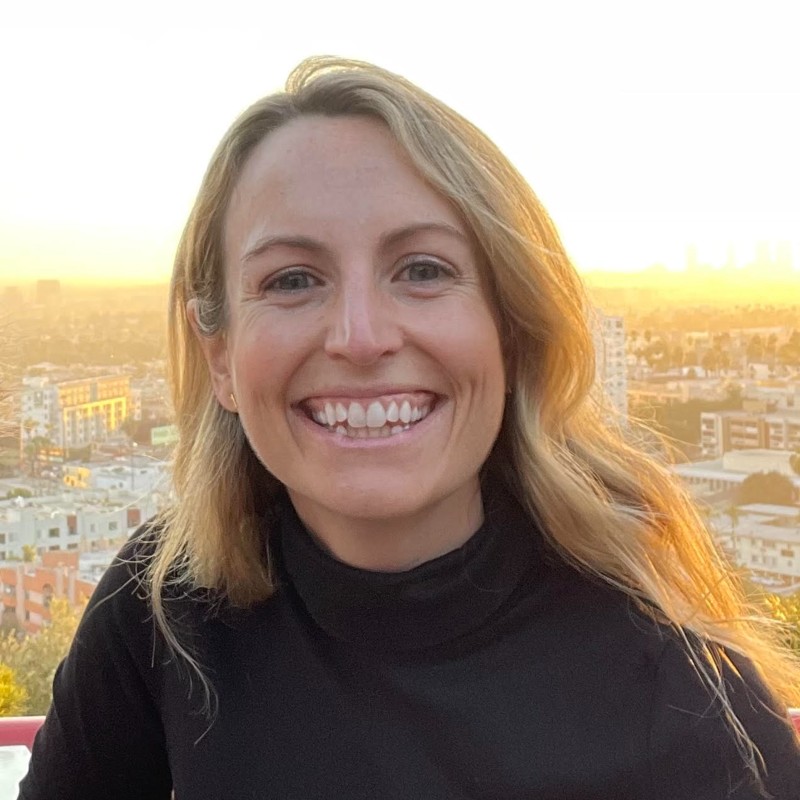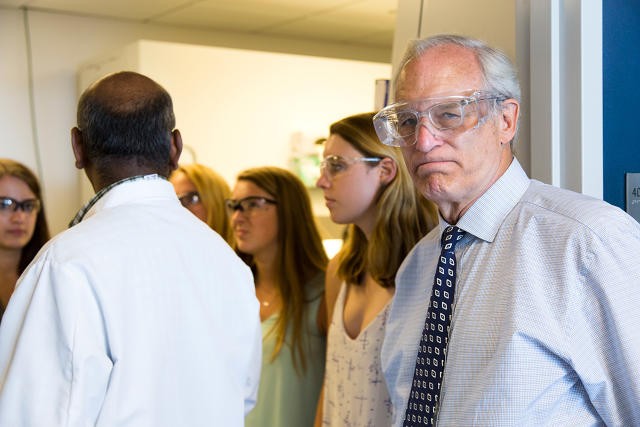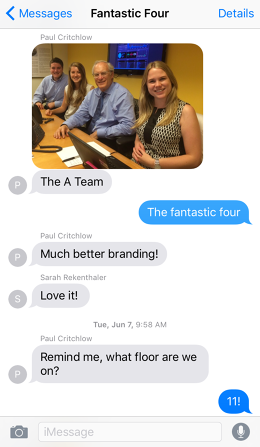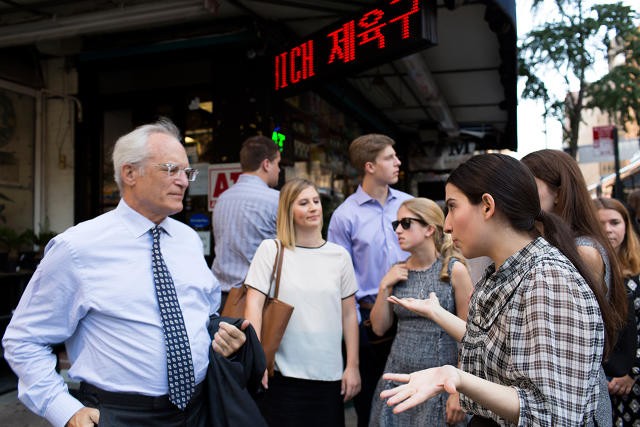The Story of This 70-year-old Intern May Be The Next Hot Trend in Recruiting
When you hear the word “intern,” you probably don’t think of a 70-year-old retiree. But that’s exactly who Sally Susman, an EVP at Pfizer, had in mind in when she brought in Merrill Lynch’s former head of communications Paul Critchlow, her personal friend, to join the summer internship at Corporate Affairs.
Inspired by The Intern, a 2015 film starring Robert De Niro, and empowered by Pfizer’s commitment to taking thoughtful risks, Susman was confident there was a lot to be gained by adding an older, more seasoned person to the 2016 Corporate Affairs internship program. It turns out she was right—and hiring managers and recruiters in other companies might want to take note.
How the internship worked at Pfizer
While at Pfizer, 70-year old Critchlow worked side-by-side with college students. He sat in an open-desk plan with three other interns; the quartet nicknamed themselves the Fantastic Four.
Critchlow taught his fellow interns about communications (his career field) and offered advice about work-life balance. They showed him social media techniques and debunked myths about Millennials. He mentored several interns, gave lunch and learns, and served as a sounding board for pitches. Pfizer drew from Paul’s expertise--at the same pay rate as the other interns: a fraction of the cost of his executive salary.
The advantages of an age-diverse workforce are obvious. Older employees make decisions based on experience. Younger employees employ academic learning. Blending the two provides cross-generational benefits. Read this from Sophia Spallas, a fellow intern and (later) Critchlow mentee:
“When I heard we would be sharing a desk with a senior intern, I honestly thought that this was going to be some super experienced older man who came into the office, put his head down, and focused only on his own work every day. I was so surprised that at lunch on Paul’s first day, he...took the time to get to know us as people, not just colleagues.
Paul clearly has an incredible resume...but it was his desire to get to know us on a personal level that made the experience [deeply] rewarding.
Paul taught me that failure can be a powerful growing experience, and if you handle it properly, you can channel your failures into something productive. This experience taught me to think differently about my career and how I view the importance of success [versus] fulfillment.”
As for Paul’s perspective on the internship, he found it to be a revitalizing experience that gave his career a second life. “After being retired for a year, I was getting bored, restless and feeling a little left out,” he said. Paul continued:
“I had gotten off the train but it kept moving and my friends and family were still on it. Then Sally Susman came along and proposed the Senior Intern idea. I jumped at it -- and what a great experience!
I felt engaged, relevant, valued and realized I had more to learn and more to contribute. Being a Senior Intern reinvigorated me, gave me new visibility and an identity, and I launched my own communications consulting business.”
Why returnships may be a hot trend in the future
By 2029, over 20% of the total U.S. population will be over age 65, according to The Census Bureau. What’s more, a study by the Federal Reserve found that among workers who have yet to retire, 26% plan to keep working as long as possible and 12% want to leave their current career but find part-time work in another field.
People are living and working longer, and many seniors still have some of their best years ahead of them.
There’s a reason Jack Welch, the former CEO of GE, popularized a reverse mentoring program that paired top executives with junior associates. Businesses now see these programs as an opportunity to develop a culture of learning and respect for what each generation brings to the workplace.
This is especially relevant for Silicon Valley, where certain companies’ workforces are comprised of mostly millennials—a fact which can lead to a narrow bubble of thought, with millennials reinforcing the millennial perspective.
Introducing relevant programs to address the aging workforce is smart business strategy: it fosters a learning exchange, diversifies your workforce, and leverages the experience of an older generation.
Just look at Juicero. Silicon Valley investors poured millions of dollars into a high-tech, expensive home juicing company only to discover—that for a $400 price tag—the gadget was essentially useless. As the Washington Post points out, this represents a failure of young, trend-happy thinking: “a bias for always favoring the next new thing.” A few older, wiser voices in the mix earlier may have prevented this flub.
How other companies can replicate this program
Critchlow’s internship at Pfizer is an impressive win. It was an unusual one, too—and something that Pfizer hasn’t yet figured out how to continue in the future. But if you’re interested in spearheading your own senior internship program, Susman has offered a few helpful takeaways:
1. Make sure you pick the right person.
Establish criteria for what a successful candidate looks like. Ideally, these would be closely aligned to company culture. For Pfizer, that meant finding someone who was flexible, with his ego in check and a terrific sense of humor. For your business, that may mean finding someone who’s innovative or outspoken or creative-minded.
2. Set clear expectations.
Senior interns should be prepared to work with a junior peer set, and for less pay than they’re used to. It’s helpful to appoint someone to orient the senior intern, to keep a pulse on how it’s going for all involved, and to help make adjustments as needed along the way.
3. Create opportunities for reciprocal mentoring.
Do identify opportunities for senior and younger interns to work on projects together. Neha Wadhwa, a Pfizer employee who oversaw the Fantastic Four, recommends being “both specific and flexible as to how the senior intern is engaged and immersed.” The program won’t work if you isolate senior interns from their younger counterparts.
Final thoughts
Paul Critchlow’s internship at Pfizer was an amazing success story. And while Pfizer hasn’t created a formal program for senior interns, according to Sally Susman, they are applying what they learned to “continue to employ a diverse workforce and work to further break down age-biases.”
Senior internships offer businesses an exciting way to leverage proven talent, and expand the field of possible workers. Given the rapidly retiring workforce and clear competitive advantages, expect to see more senior internships in the near future.
Photos: Celine Grouard for Fast Company
To receive blog posts like this one straight in your inbox, subscribe to the blog newsletter.
Topics: Future of recruiting
Related articles






